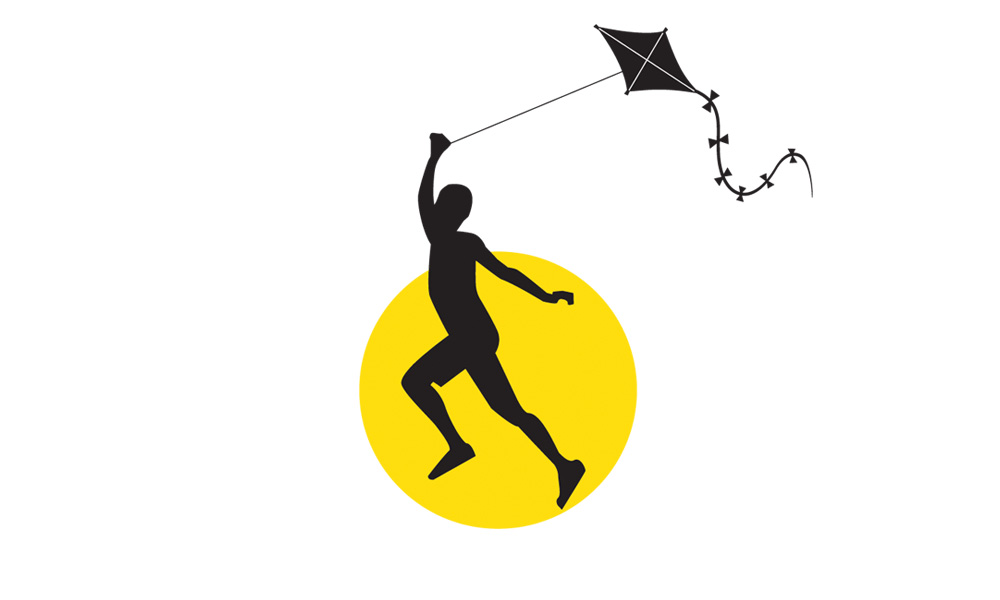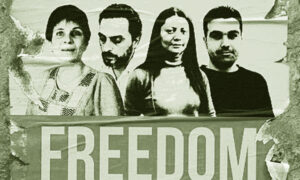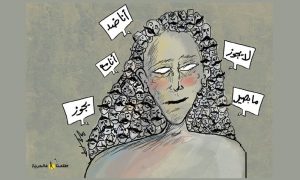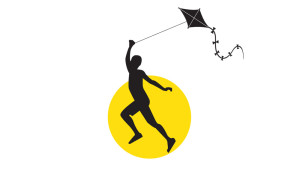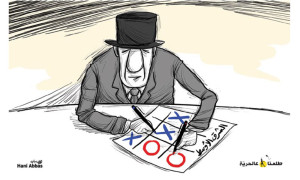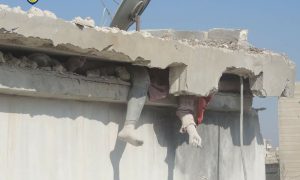By Dr. Mohammed al-Amar
The roots of the civil society concept go back to the Islamic civilization with the establishment of the Medina State, following the migration of Prophet Mohammed from Mecca to Yathrib. However, the Arab intellectuals deal with the concept from a western point of view. The state of Medina was established upon two rounds of expressing allegiance, and a practical written constitution that stated the basis of sovereignty. This constitution of the Medina was described as the first civic constitution in history, long before the establishment of the “theoretical” social contract between the nation and the ruler that intellectuals boast nowadays.
When we deconstruct the concept, we reach the conclusion that the civil society organization refers to a network of independent volunteering organizations, guarding the public space against the despotism of the ruler and his entourage. It works to protect the interests of the society members upon certain values and standards of respect, tolerance, pluralism, differentiation and peaceful management of conflicts and dispute. It is a kind of a lasting quiet revolution with a monitoring function without seeking authority.
These are the same values that the written constitution of the Medina State had called for, and were fledgling concepts that time. The written constitution of the Medina formed the basis of the authority system, organizing the multi-cultural and multi-religious society. According to the experience of Medina, the civil society was a society based on freedom, justice, pluralism, acceptance and administration of differentiation and equality between all the society members, regardless of their affiliations, beliefs and thoughts.
In the state of Medina, the civil society was governed by law and practiced pluralism and tolerance. Every society member knew his rights and duties regardless of his religion. The contemporary society, meanwhile, is dominated by chaos and governed by power and the law of the jungle. This proves that the civil society is the basis for the Islamic civilization, whilst in the other civilizations, the people suffered until they could establish a limited civil society, where they can take part in deciding for themselves.
In the Islamic society, the public space was guided by the principle of the “Promotion of Virtue and Prevention of Vice.” The citizens played a crucial role in deciding for the decisive events in their society: The site for Badr Battle was recommended by a normal person, and the site for Uhud Battle was decided by a group of enthusiastic youths. Whilst in today societies, the peace treaties with Israel were not presented to the public for referendum, nor were the agreements of the Arab rulers with the west. These agreements were revealed to the public only after the Arab Spring revolutions.
Gradually, the Islamic civilization was intruded by despotic rulers, who imposed their hegemony on their nations, giving no way for any kind of public participation in the decision-making process in areas under their administration. Whilst the Arabs were in this situation of chaos and despotism, the Europeans discovered the power of civil society in their battle against their own despotic leaders. They organized the civil society on a set of rules to become an essential part of the political system.
In contemporary Arab societies, the rulers announced war against the civil society organizations, which appeared in the wake of the role these organizations played in toppling the socialist rulers in Easter Europe. The Arab regimes acted in a defensive way against the potential threat these organizations might form against their interests. On one hand, the Arab regimes used oppressive measures to restrict the role of these organizations, accusing them of treason and alliance with the colonizer. On the other hand, they replaced them with their own created public organizations such as Talae’ (foreground) and Shabiba (Youths), that can be kept under their control. They were the only two organizations in Syria that were established by the ruling party (The Arab Socialist Ba’ath Party).
Nevertheless; the civil society organizations in the Arab world played a vital role in the eruption of the Arab Spring revolutions and toppling the despotic rulers. The consequences of these revolutions differed depending on the role and strength of the civil society organizations in those societies. In the countries, where the despotic rulers had completely destroyed the civil society, the revolution was transformed into destructive wars, such as in Syria, where the society only knew the Talae’ and Shabiba. These revolutions were less destructive in the countries, where the civil society organizations enjoyed wider margins of freedom.
In short, we are not aware of the treasures we have as Arabs and Muslims. We studied Ibn Khaldoun only after the western world talked about his precious contribution to the field of sociology. We never connected between the civil society and the state of Medina and this is why we discuss the concept of civil society from a western point of view.
The Islamic society, as history works have proved, was a civil society before the despotic leaders transformed it into a tool in their own service. On the other hand, the Arab revolutions have revived the role of the civil society organizations and it is our duty now to strengthen it and make it lasting by liberating it and organizing its factions, helping them to play their required role in serving the nation and protecting the society.

A Syrian semi monthly, independent, political, cultural, social, and economic magazine

